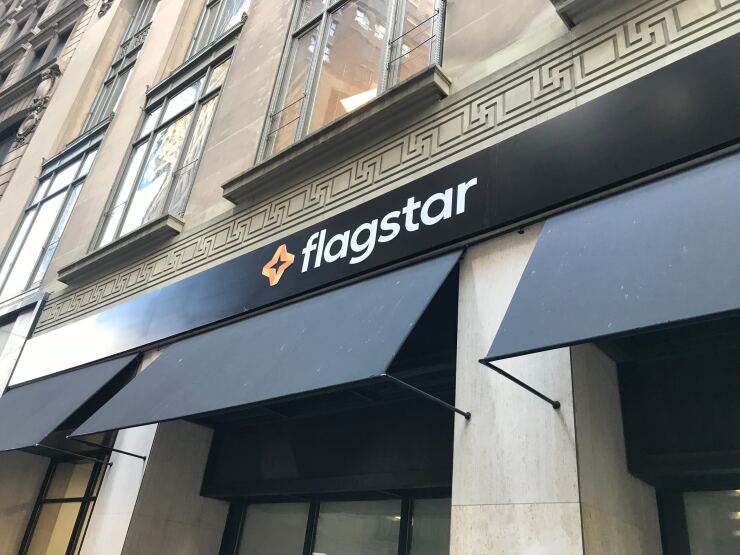
The decision to allow New York Community Bancorp's Flagstar Bank to buy Signature Bank spectacularly failed the American people for many reasons.
Although much of the reporting to date has focused on NYCB's commercial real estate loan exposures, which certainly increased the bank's risk, there are deeper and far more dangerous risks. Flagstar's growth over the course of just two quarters in 2022 far exceeded what was reported by all three regional banks that failed in 2023 in the years leading up to their demise. With its acquisition of New York Community Bank, Flagstar grew from $25 billion in assets as of September 2022, to $90 billion in assets as of December 2022. Then, with its acquisition of Signature, Flagstar grew to $123 billion in assets as of March 2023.
The complexity of merging and integrating operations of previously separate entities is time consuming and often arduous, even under the best of circumstances. That's why it was no surprise that the federal banking regulators highlighted the problems of rapid substantial growth leading to inadequate internal controls as one of the key drivers of the 2023 regional bank failures. Similarly, given two major mergers within a matter of months, it's no surprise that Flagstar's internal control failures were severe and required financial restatements and a board and senior management shakeup.
The broader consequences of Flagstar's recent mergers are that the bank now represents a real systemic threat to our financial system. At its current asset size, if the bank were to fail, it is reasonable to expect that another systemic risk exception would be used, like what we saw in 2023 for Silicon Valley Bank and Signature. This would likely result in significant cost and damage to taxpayers, Main Street and the American public.
As bad as it was to allow back-to-back mergers, it's equally inexplicable that regulators apparently ignored or disregarded the banks' history of illegal and discriminatory conduct. The regulators are specifically mandated to be on watch for such behavior and act decisively to stop it.
Back in 2021, when NYCB announced its initial plan to acquire Flagstar, it followed the regular process by requesting permission from federal and state regulators. However, the application process did not go smoothly.
The New York state regulator granted approval but the Federal Deposit Insurance Corp. was "so concerned about fair lending failings at Flagstar" that it would not support the merger, according to one news report. The Consumer Financial Protection Bureau had also taken action against Flagstar for discriminatory practices related to its mortgage business, and the bank has been the subject of a private lawsuit claiming discriminatory practices that hurt African American borrowers. With only the state regulators approving the merger, NYCB engaged in what looks like blatant regulatory arbitrage.
In April 2022, NYCB dropped its pending merger proposal and began the process to become a national bank. This required the banks to restructure the merger so that Flagstar would be acquiring NYCB, not the other way around as before. The regulator switch also meant that the OCC would now make the decision on the merger application. The agency inexplicably approved the merger, which was finalized in December 2022.
That the OCC would allow these banks to engage in what seemed to be blatant regulatory arbitrage, moving from one regulator to another, to get a different outcome, is unbelievable. It is reminiscent of the disreputable and discredited "charter shopping" that occurred before the 2008 crash and was a primary driver for eliminating the Office of Thrift Supervision in the Dodd-Frank Act. The apparent willingness of the OCC to do this and ignore a pattern of racial discriminatory conduct by merger participants adds insult to injury.
As the 2023 regional banking crisis unfolded, less than 100 days had passed since the merger with NYCB had been approved. The many complicated aspects of merging those two banks were in the very earliest stages. Nevertheless, regulators allowed Flagstar to become an approved bidder in the auction for the then-failing banks. What's worse, regulators selected it to be the winning bidder for Signature.
Given the recent ongoing merger and the discrimination, it is shocking that Flagstar was even approved as a qualified bidder. It is even less understandable how regulators could possibly have chosen it as the winning bidder. Executing a merger and integrating banks successfully are exceedingly challenging, even under the best of circumstances. Here, the regulators' approval required these banks to do all of that simultaneously under what was probably the worst of circumstances.
The American people deserve better from their financial regulators, and they deserve to know how this could have happened. A thorough, but independent investigation of the regulators' conduct in connection with the mergers leading to NYCB's problems must be conducted.






